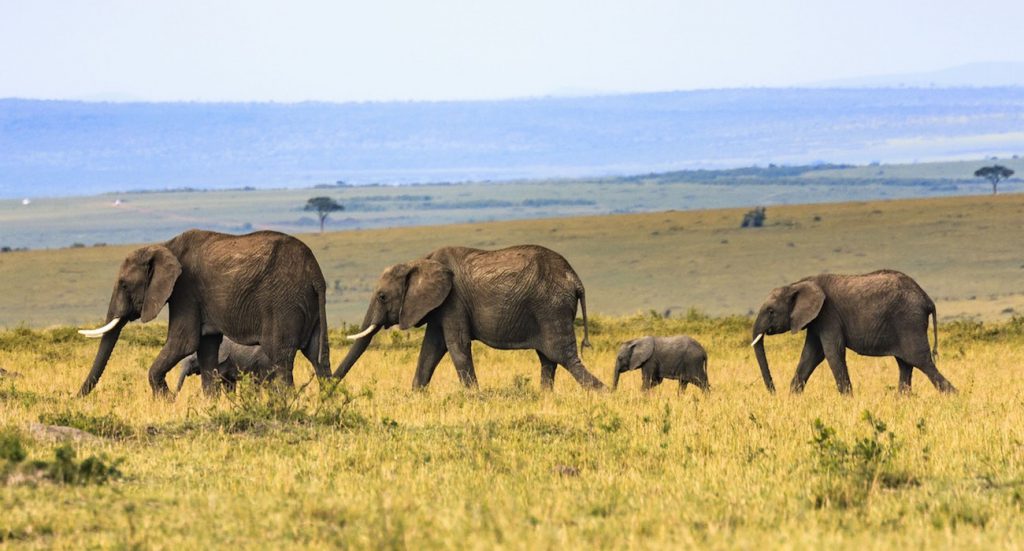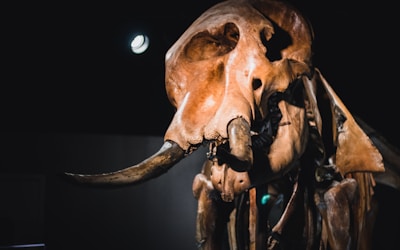The Elephant Permit in the Room
Once again, conservationists harm the species they hope to protect.
This time it’s economic. The legal, licensed hunting of African game gives elephants huge economic value to the communities and countries where they are found. Hunters pay big license fees and hire locals to work the hunts. Because of this they are protected. Take this away and villagers see elephants as dangerous nuisances which destroy their crops, and lucrative targets for poaching.
Even with protection 25,000 to 50,000 elephants will be poached this year. Destroy its value to hunters and the African Elephant could be extinct in an eye blink. And this ignores the economic damage anti-hunters would inflict on some of the world’s poorest people while trying to ‘protect’ elephants.
NOTE: this article below is via PERC.org and their Summer 2018 PERCReport. It was written by Catherine E. Semcer and posted July 13, 2018.
Four years ago, the U.S. government used its authority under the Endangered Species Act to impose a temporary ban on imports of elephant hunting trophies from Zimbabwe.
While anti-hunting activists celebrated what they saw as an important step to bolster Africa’s declining elephant populations, African conservationists greeted the news with concern. They feared the U.S. policy would threaten the very elephants it intended to conserve, as key economic incentives for conservation disappeared.
What followed highlighted shortcomings in the Endangered Species Act that, unless remedied, will ensure the statute remains an obstacle to international conservation and economic development. Much of the challenge stems from the broad authority the law grants to the U.S. Fish and Wildlife Service, which results in unnecessary redundancy and opens doors for arbitrary enforcement decisions. If the act is to reach its full potential to help conserve global biodiversity, Congress will have to modernize the language of the law and bring it into line with the international consensus about the essential roles that sustainable use and trade can play in conservation.
When the United States enacted its moratorium in 2014, Zimbabwe was home to approximately 83,000 elephants, the second largest population in Africa. Zimbabwe’s elephant conservation success is largely due to the adoption of a community-based resource management program known as CAMPFIRE. Under the program, rural communities receive half of revenues from trophy-hunting operations, as well as access to meat from animals killed by foreign hunters. This injection of cash and food into impoverished areas creates a powerful incentive to coexist with healthy herds of elephants, which are known to damage crops and occasionally kill people.
The model also benefits Zimbabwe Parks and Wildlife Management Authority, or Zimparks, which oversees elephant hunting. The agency is financially independent of the national government and derives 60 percent of its operating revenue from hunting fees.
Zimbabwe and the United States are both parties to the Convention on International Trade in Endangered Species (CITES), a multilateral agreement that regulates global trade in biodiversity. In the case of elephants, CITES allocates Zimbabwe and other elephant-range nations annual quotas of permits under which trophies can be exported. Under this system, the number of permits to export elephant trophies from Zimbabwe is low, amounting to less than one-quarter of 1 percent of the country’s total elephant population in recent years.
While the Zimbabwe moratorium was eventually deemed illegal and lifted, the Fish and Wildlife Service still has the authority to behave in an arbitrary manner, to the detriment of international conservation efforts.
In addition to the CITES permit controls, the U.S. government lists the African elephant as “threatened” under the Endangered Species Act, the law that implements CITES provisions in the United States. Under Section 4(d) of the act, trophies of a listed species may be imported only if the Fish and Wildlife Service determines that the nation’s relevant hunting program enhances the survival of the species. Such imports require American hunters to obtain “enhancement permits,” bestowed at the agency’s discretion, in addition to CITES export permits. This authority means the Fish and Wildlife Service can unilaterally undermine the CITES process and, consequently, the conservation programs of nations like Zimbabwe, which are dependent upon the trophy-hunting trade. This is exactly what happened when the United States imposed its 2014 moratorium on Zimbabwean elephant trophy imports.

After nearly two decades of recognizing that Zimbabwe’s conservation programs enhanced elephant survival, the Fish and Wildlife Service abruptly stopped issuing enhancement permits for the country’s trophies without soliciting public comment or consulting Zimparks. The agency cited a number of reasons for its decision, including the failure of Zimparks to prove that hunting encouraged elephant conservation. In December 2017, however, a U.S. appellate court ruledthat the agency had acted illegally, and the blanket ban was ended earlier this year—but not before its damages were felt across Zimbabwe’s wildlands.
Unable to import elephant trophies from Zimbabwe, American hunters took their business elsewhere. Within the first year of the moratorium, revenue for Zimbabwe’s safari operators declined by 30 percent, according to the Safari Operators Association of Zimbabwe. These revenue losses weakened hunting-funded counter-poaching operations, such as those in the Dande North and Dande East Safari Areas, which saw a fivefold increase in elephants killed by poachers in the years following the moratorium. The loss of revenue also meant Zimparks could not pay its rangers. Some of them subsequently turned to poaching to make a living. In a 2015 case that captured worldwide attention, unpaid Huwange National Park rangers were implicated in the cyanide poisoning of 62 elephants.
While the Zimbabwe moratorium was eventually deemed illegal and lifted, the Fish and Wildlife Service still has the authority to behave in an arbitrary manner, to the detriment of international conservation efforts. The fact that enhancement permits issued to American hunters under the Endangered Species Act can be more difficult to obtain than export permits issued under CITES represents a barrier to trade that has severe negative consequences for African wildlife and the communities that bear the costs of that wildlife.
Congress can ensure that the harms done in Zimbabwe are not repeated elsewhere. One option is to assure an import permit to any hunter who already holds a CITES export permit. Such a move would prevent Fish and Wildlife Service from arbitrarily disrupting a foreign country’s conservation programs. It would also signal the United States’ commitment to CITES and its confidence in the ability of sustainable hunting and international trade to promote conservation.
Forty-five years after its passage, the Endangered Species Act and its enhancement permitting process needs to be modernized to accommodate 21st century realities of emerging markets, global trade, and international cooperation. Doing so will help ensure the United States remains a leader in wildlife conservation and economic liberty around the world.



